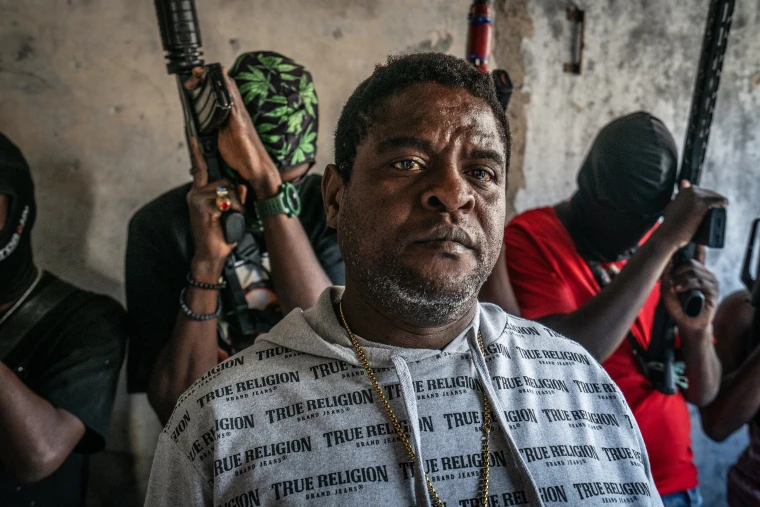Across the Caribbean, December 5th marked a day of celebration and reflection as Haiti and Cuba each hosted significant events showcasing the region’s vibrant culture and political alliances. In Haiti, the ‘Day of the Artisans’ brought attention to the nation’s rich craftsmanship and creative heritage, while Cuba commemorated its enduring ties with the Caribbean Community (Caricom). Together, these events emphasized the interconnectedness of culture, diplomacy, and regional identity.
Haiti’s ‘Day of the Artisans’: Honoring Creativity and Resilience
Haiti, renowned for its rich artistic traditions, observed the ‘Day of the Artisans’ as a tribute to its talented craftspeople. From intricate metalwork to hand-carved wooden sculptures, Haitian artisans have long been at the forefront of Caribbean creativity, transforming raw materials into works of art that reflect the country’s history, struggles, and aspirations.
A Celebration Rooted in History
The celebration of artisans in Haiti dates back decades, recognizing the invaluable contributions of craft workers to the country’s economy and cultural identity. Haitian art and craftsmanship emerged as powerful symbols of resistance and resilience during the country’s post-revolutionary era, often portraying themes of liberation and unity. Today, the ‘Day of the Artisans’ underscores the continued importance of this sector in shaping Haiti’s cultural narrative.
Showcasing Haitian Craftsmanship
The event saw exhibitions and fairs in Port-au-Prince and other major cities, where artisans displayed their creations. Visitors marveled at vibrant paintings, traditional Vodou flags, papier-mâché masks, and jewelry crafted from recycled materials. These works reflected Haiti’s deep connection to its environment, as well as its artisans’ ability to create beauty amidst challenging circumstances.
One artisan, Marie-Claire Joseph, shared the significance of her work:
“When I create, I’m not just making a product; I’m telling Haiti’s story. Our art is our voice, and it carries our dreams to the world.”
Economic and Cultural Impact
Artisans play a critical role in Haiti’s economy, particularly in tourism and export markets. Handcrafted items are sought after worldwide, offering economic opportunities for thousands of families. However, political instability, natural disasters, and a struggling infrastructure have often posed significant challenges for the sector.
By celebrating the ‘Day of the Artisans,’ Haiti not only honors its artists but also highlights the need for increased support. Government initiatives announced during the event included grants for training programs and funding for artisan cooperatives to expand their reach and capabilities.
Cuba’s Celebration of Caricom Ties: Strengthening Regional Unity
On the same day, Cuba held events commemorating its longstanding relationship with the Caribbean Community (Caricom). This partnership, established in the early 1970s, has been a cornerstone of regional diplomacy, emphasizing solidarity, mutual aid, and shared cultural values.
Historical Context
Cuba’s ties with Caricom began on December 8, 1972, when four Caribbean nations—Barbados, Guyana, Jamaica, and Trinidad and Tobago—became the first to establish diplomatic relations with the socialist state. This bold move defied the U.S. embargo and symbolized the Caribbean’s commitment to sovereignty and regional solidarity.
Fidel Castro, Cuba’s iconic leader, described the partnership as “a bridge of unity across the Caribbean Sea,” a sentiment that continues to resonate today.
The Day’s Celebrations
This year’s commemoration featured cultural exchanges, diplomatic meetings, and public events highlighting the achievements of the Cuba-Caricom alliance. In Havana, a symposium explored the partnership’s role in advancing regional goals, such as sustainable development, disaster preparedness, and health care access.
Cultural performances included music, dance, and poetry that celebrated the shared heritage of Cuba and its Caribbean neighbors. One standout moment was a joint performance by Cuban and Jamaican musicians, blending reggae and Afro-Cuban rhythms to the delight of attendees.
Health and Education as Pillars of Cooperation
Cuba’s contributions to the Caribbean have been particularly impactful in the fields of health and education. The country’s renowned medical brigades have provided essential services across the region, from responding to natural disasters to offering routine health care in underserved areas.
Cuban scholarships for Caribbean students have also strengthened educational ties, allowing hundreds of young people to pursue higher education in fields like medicine and engineering.
Caricom Secretary-General Carla Barnett praised these efforts, saying:
“Cuba’s unwavering support has been instrumental in building a more resilient Caribbean. Our partnership is a testament to what we can achieve together.”
Challenges and Opportunities
While the partnership remains strong, it faces challenges, including the ongoing U.S. embargo against Cuba and economic hardships exacerbated by global crises. However, both Cuba and Caricom nations have expressed their commitment to deepening collaboration and exploring new areas of cooperation, such as renewable energy and climate resilience.
Shared Themes: Culture, Unity, and Progress
Though Haiti’s ‘Day of the Artisans’ and Cuba’s celebration of Caricom ties are distinct events, they share underlying themes that resonate across the Caribbean:
- Cultural Pride: Both celebrations emphasize the importance of preserving and showcasing the region’s rich cultural heritage. Whether through art or music, these events highlight the Caribbean’s unique identity on the global stage.
- Regional Solidarity: Haiti and Cuba’s events underscore the power of unity, whether through diplomatic partnerships or collective support for local industries. They remind the Caribbean community of its shared challenges and the strength found in collaboration.
- Resilience in Adversity: Both nations face significant hardships, yet their celebrations reflect an unwavering determination to overcome obstacles and build a brighter future.
Looking Ahead
As Haiti continues to grapple with political and economic challenges, supporting its artisans could be a key step toward revitalizing the nation. Artisans not only contribute to cultural preservation but also create jobs and drive economic growth. Initiatives like the ‘Day of the Artisans’ serve as a reminder of their importance and the need for sustained investment in their craft.
For Cuba and Caricom, the future lies in expanding their partnership to address emerging challenges. From tackling climate change to boosting trade, the alliance offers a framework for collective progress. As Caricom prepares to mark its 50th anniversary in 2025, its relationship with Cuba stands as a model of regional cooperation.
Conclusion
The dual celebrations in Haiti and Cuba highlight the Caribbean’s rich tapestry of culture, history, and diplomacy. Haiti’s ‘Day of the Artisans’ serves as a tribute to the creativity and resilience of its people, while Cuba’s commemoration of Caricom ties showcases the strength of regional unity. Together, these events remind the world of the Caribbean’s enduring spirit and its capacity to inspire through both art and collaboration.
As the region continues to navigate a complex global landscape, such celebrations offer a beacon of hope, reminding its people—and the world—of the beauty and strength that arise from unity and cultural pride.




